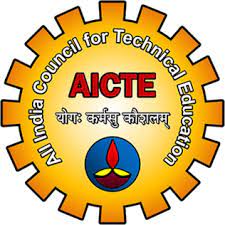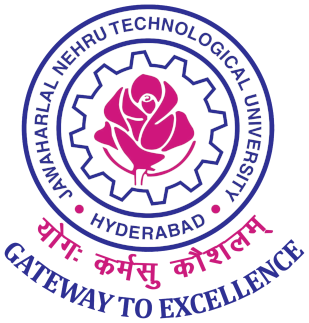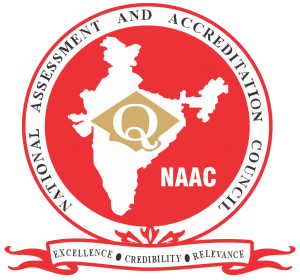CSE
About Department
About Department
The Department of Computer Science and Engineering at the KHAMMAM INSTITUTE OF TECHNOLOGY & SCIENCES was formed in the year 2008 and provides an outstanding Practical environment complemented by excellence in teaching.
The Department offers B.Tech with an intake of 120 Students. The Department has a comprehensive curriculum on topics related to all aspects of Computer Hardware and Software with an emphasis on practical learning, with a contemporary course structure that includes courses on nascent topics to equip our students with the latest developments in Computer Science and Engineering.
The Department has state-of-the-art infrastructure and computing equipment supported by high speed Ethernet and wireless networks. Various student organizations like Linux and Open Solaris Community are active throughout the year.
Our faculty members aim at delivering top class education blending their rich Practical and research experience with classroom teaching. The Department has undertaken many real time projects.
PLACEMENTS:
The placement records at the Computer Science and Engineering Department are phenomenal. Our graduates have been consistently placed in companies like TCS, IBM Group etc, with salaries going well beyond a lakh per month. Here’s a statistic that will help put things in perspective.
In 2018-19, 82 students of this department were placed with an average salary of over 4 lakhs. The number of eligible students was 97, meaning that on an average students received more than 1 good placement opportunity.
PROGRAM OUTCOMES (PO’S):
Engineering Graduates will be able to:
1. Engineering Knowledge: Apply the knowledge of mathematics, science, engineering fundamentals, and an engineering specialization to the solution of complex engineering problems.
2. Problem Analysis: Identify, formulate, review research literature, and analyze complex engineering problems reaching substantiated conclusions using first principles of mathematics, natural sciences, and engineering sciences.
3. Design/Development of Solutions: Design solutions for complex engineering problems and design system components or processes that meet the specified needs with appropriate consideration for the public health and safety, and the cultural, societal, and environmental considerations.
4. Conduct Investigations Of Complex Problems: Use research-based knowledge and research methods including design of experiments, analysis and interpretation of data, and synthesis of the information to provide valid conclusions.
5. Modern Tool Usage: Create, select, and apply appropriate techniques, resources, and modern engineering and IT tools including prediction and modeling of complex engineering activities with an understanding of the limitations.
6. The Engineer and Society: Apply reasoning informed by the contextual knowledge to assess societal, health, safety, legal and cultural issues and the consequent responsibilities relevant to the professional engineering practice.
7. Environment and sustainability: Understand the impact of the professional engineering solutions in societal and environmental contexts, and demonstrate the knowledge of, and need for sustainable development.
8. Ethics: Apply ethical principles and commit to professional ethics and responsibilities and norms of the engineering practice.
9. Individual and team work: Function effectively as an individual, and as a member or leader in diverse teams, and in multidisciplinary settings.
10. Communication: Communicate effectively on complex engineering activities with the engineering community and with society at large, such as, being able to comprehend and write effective reports and design documentation, make effective presentations, and give and receive clear instructions.
11. Project management and finance: Demonstrate knowledge and understanding of the engineering and management principles and apply these to one’s own work, as a member and leader in a team, to manage projects and in multidisciplinary environments.
12. Life-long learning: Recognize the need for, and have the preparation and ability to engage in independent and life-long learning in the broadest context of technological change.
PROGRAM EDUCATIONAL OBJECTIVES (PEO’S):
To expose students to tools and techniques of Computer Science and Engineering so that they can comprehend, analyze, design and create innovative computing products and solutions for real life problems.
. To train the students in professional and communication skills and exposure to contemporary technologies for immediate employment or for entrepreneurial pursuits.
. To encourage students for higher studies, research activities and entrepreneurial skills by imparting interactive quality teaching and organizing symposiums, conferences, seminars, workshops and technical discussions
PROGRAM SPECIFIC OUTCOMES (PSO’S):
By the completion of Computer Science program the student will have following Program specific outcomes:
1.Foundation of Computer Systems: Students will have the ability to understand the principles and working of computer systems. Students can assess the hardware and software aspects of computer systems.
2.Foundations of Software Development: Students will have the Ability to understand the structure and development methodologies of software systems. Possess professional skills and knowledge of software design process. Familiarity and practical competence with a broad range of programming language and open source platforms.
3.Foundation Of Mathematical Concepts: Ability to apply mathematical methodologies to solve computational tasks, model real world problems using appropriate data structures and suitable algorithms.
4.Applications of Computing and Research Ability: Ability to use knowledge in various domains to identify research gaps and to provide solutions to complex problems.
PROGRAM LEARNING OUTCOMES (PLO’S):
PLO1: Graduates will be able to identify, formulate and analyze complex Computer Science and Engineering problems in the areas of hardware, software and its related applications.
PLO2: Graduates will be able to apply the knowledge of Mathematics, Science and Computer Science and Engineering to solve complex engineering problems related to the design, development, testing and maintenance of computing systems.
PLO3: Graduates will be able to design and build a system, component, process or a program for complex engineering problems by factoring in all the requirements and various design tradeoffs, with appropriate consideration for the public health and safety, cultural, societal and environmental factors.
PLO4: Graduates will be able to create, select and apply state of the art tools and techniques in designing, developing and testing a computing system or its component individually as well as in multidisciplinary teams.
PLO5: Graduates will be able to apply professional ethics and pledge to the norms/Responsibilities in the engineering practice of Computer Science.
PLO6: Graduates will be able to communicate effectively on complex software/system engineering activities with the peer community and society through reports& presentations.
INFRASTRUCTURE:
. The department is equipped with the state of art equipment supporting latest softwares.
. Round the clock internet facilities are provided for the benefit of the students & the staff.
. The Computer Science & Engineering Department has well equipped labs, lecture halls & staff rooms.
. All the clients are networked in LAN, in all the laboratories.
LIST OF LABORATORIES:
I YEAR I SEMESTER
1. Engineering Workshop
2. Engineering Chemistry Lab
3. English Language and Communication Skills
4. Basic Electrical Engineering Lab
I YEAR II SEMESTER
1. Applied Physics Lab
2. Programming for Problem Solving Lab
3. Environmental Science
II YEAR I SEMESTER
1. Analog and Digital Electronics Lab
2. Data Structures Lab
3. IT Workshop Lab
4. C++ Programming Lab
5. *Gender Sensitization Lab
II YEAR II SEMESTER
1. Operating Systems Lab
2. Database Management Systems Lab
3. Java Programming Lab
III YEAR I SEMESTER
1. Design and Analysis of Algorithms Lab
2. Computer Networks Lab
3. Software Engineering Lab
III YEAR II SEMESTER
1. Cryptography and Network Security Lab
2. Web Technologies Lab
3. Advanced English Communication Skills Lab
IV YEAR I SEMESTER
1. Data Mining Lab
2. Python Programming Lab
3. Mobile Application Development Lab
4. Web Scripting Languages Lab
5. Intern
Our Vision
Department Vision
To become a centre of excellence in the field of Computer Science and Engineering that produces innovative, skillful, socially responsible and ethically strong professionals.
Mission
Department Mission
To create, share, and apply knowledge in Computer Science, including interdisciplinary areas that extend the scope of Computer Science and benefit humanity by providing state-of-the-art training, hands on experience and healthy research environment.
To educate students to be successful, ethical, and effective problem-solvers and life-long learners who will contribute positively to the economic well-being of our region and nation and who are prepared to tack
Faculty
| Faculty Id | Faculty Name | Faculty Designation |
|---|---|---|
| 01 | Dr.V.SUDHARSHAN | HOD & ASSOC. PROFESSOR |
| 02 | Dr.S.VENKATESAN | PROFESSOR |
| 03 | Mr.M.PRADEEP REDDY | ASSOC. PROFESSOR |
| 04 | Mr.CH.UPENDAR RAO | ASSOC. PROFESSOR |
| 05 | Mr.A.SATISH | ASSOC. PROFESSOR |
| 06 | Mrs.M.PADMAVATHI | ASSOC. PROFESSOR |
| 08 | Mrs.M.SADALAXMI | ASSOC. PROFESSOR |
| 09 | Mr.A.MURALIKRISHNA | ASSOC. PROFESSOR |
| 10 | Mr.SK.GOUSE PASHA | ASST.PROFESSOR |
| 11 | Mr.A.DEVILAL | ASST.PROFESSOR |
| 12 | Mr.S.RAJEEV | ASST.PROFESSOR |
| 13 | Mr.S.PURUSHOTHAM | ASST.PROFESSOR |
| 14 | Mr.A.DILEEP KUMAR | ASST.PROFESSOR |
| 15 | Mr.SK.NAGA SAIDULU | ASST.PROFESSOR |
| 16 | Mrs.K.NARMADA | ASST.PROFESSOR |
| 17 | Mr.R.UDAY KHANNA | ASST.PROFESSOR |
| 19 | Mr.G.UDAY KISHORE | ASST.PROFESSOR |
| 07 | Mrs.M.PADMAVATHI | ASSOC. PROFESSOR |
| 18 | Mr.P.NAGA KALYAN | ASST.PROFESSOR |
| 20 | Mis.B.SRAVANTHI | ASST.PROFESSOR |
| 21 | Mrs.CH.VISHALANDRA | ASST.PROFESSOR |
| 22 | Mrs.K.SONY | ASST.PROFESSOR |
| 23 | Mrs.T.SUKANYA | ASST.PROFESSOR |
| 24 | Mr.M.SIVAKRISHNA | ASST.PROFESSOR |
| 25 | Mr.D.NARESH | ASST.PROFESSOR |






.jpg)

